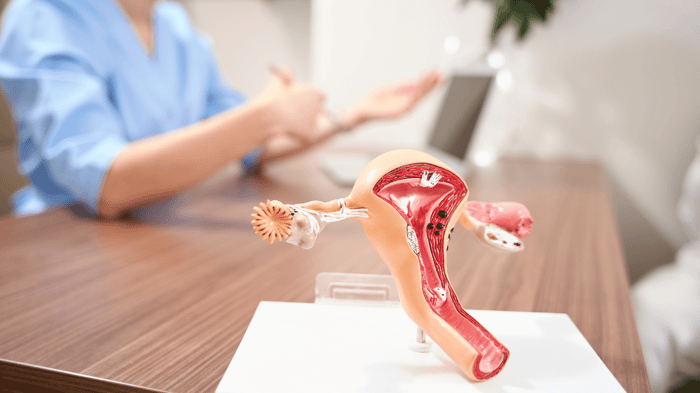Table of Contents
Vaginal dryness isn’t just a “down there” issue. It has ripple effects that reach into emotional health, self-esteem, relationships, and even daily confidence. The psychological impact often includes stress, lowered self-image, and strain on intimacy—reminding us that dryness is not only physical but deeply emotional.
If you’ve ever felt frustration, embarrassment, or sadness because of dryness, you are far from alone. Studies show it can reduce overall well-being, limit sexual satisfaction, and add layers of stress to everyday life. Left unaddressed, the cycle of discomfort and anxiety can feel endless—but there are solutions.
At Flower Power®, we believe in tackling taboos head-on. Vaginal dryness deserves open conversation, practical solutions, and a reminder that your pleasure and confidence are not optional—they’re essential.
Understanding Vaginal Dryness and Its Causes
Vaginal dryness can appear at different stages of life. Hormones are often the main driver, but not the only one. Understanding the “why” helps women find the right solutions for both body and mind.
Hormonal Changes and Estrogen Levels
Estrogen keeps the vaginal lining thick, elastic, and naturally lubricated. When levels fall—during menopause, after childbirth, while breastfeeding, or from certain medical treatments—moisture production decreases.
Lower estrogen also reduces blood flow, slowing tissue repair and making the vaginal lining thinner and more sensitive. The result? Irritation, discomfort, and painful intimacy.
Menopause and GSM
Menopause is the most common time women report dryness. The hormonal shifts don’t just affect hot flashes and mood swings—they cause lasting changes known as genitourinary syndrome of menopause (GSM).
With GSM, dryness often comes with burning, irritation, and urinary discomfort. Unlike hot flashes, these symptoms don’t fade with time—they often persist or worsen without treatment. This makes GSM a long-term wellness issue, not just a passing phase.
Vaginal Atrophy
Vaginal atrophy, a key feature of GSM, refers to the thinning and shrinking of vaginal tissue. It raises the risk of pain during sex, changes the vaginal pH, and makes infections more likely. Over time, the physical discomfort can create an emotional burden that affects how women see themselves and how they connect with others.
Other Causes
Not all dryness is linked to menopause. Autoimmune conditions like Sjögren’s syndrome, medications such as antidepressants or antihistamines, and cancer treatments like radiation or chemotherapy can all reduce lubrication.
Lifestyle also matters: smoking lowers blood flow, chronic stress disrupts hormones, and harsh hygiene products can upset the vaginal balance. Each factor chips away at comfort and, by extension, confidence.
The Psychological Side of Vaginal Dryness
Dryness is rarely just about discomfort. It can challenge how women see themselves, how they show up in relationships, and how they navigate daily emotional health.
Impact on Self-Esteem and Body Image
Dryness often comes with an unwanted whisper: “I’m aging,” or worse, “I’m less of a woman.” That internal dialogue can hurt self-esteem. Painful intimacy may reinforce feelings of unattractiveness or worry about being “broken.”
Body image takes a hit when sex becomes associated with fear or avoidance. Instead of intimacy bringing closeness, it brings tension. Studies show that midlife women dealing with dryness often report lower confidence in their desirability and sexual identity.
Anxiety and Emotional Well-Being
For many, dryness turns intimacy into a source of worry. Anticipating pain before sex can create anxiety that lingers outside the bedroom, too. Some women feel frustrated or depressed when attempts at relief don’t work, compounding stress from menopause, chronic illness, or simply daily life.
One review noted the heavy emotional burden dryness carries—making it not just a physical condition but a psychosocial challenge.
Quality of Life
Dryness doesn’t stay in the bedroom. It can interfere with sleep, exercise, focus, and even social life. Constant irritation or soreness drains energy and motivation. In long-term conditions like Sjögren’s, vaginal dryness is linked to lower overall quality of life—proof that this is about more than sexual health.
Addressing the Psychological Impact
The good news: there are ways to break the cycle. Relief comes when women treat both the physical and emotional sides of dryness.
Breaking the Stigma
Too often, women see vaginal dryness as something to hide. That silence creates shame and delay in seeking help. But talking about dryness is the first step to healing. Conversations with partners reduce tension and restore intimacy. Discussions with healthcare providers open doors to real treatment options.
Support groups and educational resources also normalize the experience. When women realize “it’s not just me,” they’re more likely to take action.
The Role of Healthcare Providers
Gynecologists can help by not only treating the physical symptoms but also asking about emotional well-being. Many women feel relieved just by being validated: “Yes, dryness is real, it’s common, and it’s treatable.”
Providers can assess mood, quality of life, and intimacy concerns alongside medical factors—ensuring treatment is holistic. That validation alone often reduces anxiety and shame.
Treatment Options
Relief doesn’t have to mean hormones right away. Treatments range from simple moisturizers and lubricants to low-dose vaginal estrogen, probiotics, and even laser therapies. Counseling and therapy also play a role when self-esteem and intimacy are deeply affected.
But here’s something crucial: not every woman wants, needs, or can take hormones. That’s where natural, hormone-free support becomes essential.
Where She Juicy Fits In
Here’s the reality: dryness isn’t just about biology—it’s about how you feel in your skin, your relationships, and your confidence. That’s why solutions need to go beyond a quick fix.
Enter She Juicy, Flower Power®’s vaginal moisture supplement that’s:
100% natural & plant-based: Powered by Slippery Elm Bark to nourish vaginal mucosa and support natural lubrication.
Hormone-free: No estrogen. No synthetic hormones. Just clean, safe ingredients.
Doctor-trusted, vegan & cruelty-free: Because your wellness should feel good in every sense.
Made in the USA with love and science: Backed by quality standards you can trust.
Unlike external lubricants that mask the issue, She Juicy works from the inside out to restore comfort and confidence. Women report not only feeling wetter but also feeling sexier, more vibrant, and more themselves again.
Dryness doesn’t have to define your sex life or your self-esteem. With She Juicy, you can feel juicy again—naturally.
From Dryness to Wholeness: Reclaiming Comfort and Confidence
Vaginal dryness is not just about irritation or discomfort. It’s about confidence, identity, intimacy, and quality of life. The psychological toll can be heavy, but you don’t have to carry it alone.
From breaking stigma to seeking medical support, and from hormone therapy to natural solutions, there are ways to reclaim your comfort and your confidence.
And when you’re ready for a natural, hormone-free way to support your body? She Juicy is here to help you feel juicy again, naturally. Because your pleasure, your relationships, and your self-esteem matter—every single day.
Explore She Juicy and discover how it can transform not just your physical comfort, but your emotional wellness, too.
FAQs
What emotional effects are most common with vaginal dryness?
Frustration, sadness, anxiety, and lowered self-esteem are the most common. Painful intimacy can lead to avoidance, which reinforces feelings of unattractiveness or “being broken.”
Can hormonal changes really affect mood as well as dryness?
Absolutely. Low estrogen doesn’t just thin vaginal tissue; it impacts brain chemistry and mood regulation. Many women report irritability, sadness, and loss of control alongside dryness.
How does dryness affect relationships?
Pain during intimacy often causes women to avoid sex. This can create distance, miscommunication, or even conflict with partners. Surveys show couples report reduced satisfaction and closeness when dryness is untreated.
What impact does dryness have on body image?
Some women feel older or less feminine when dryness appears, which lowers self-confidence. When intimacy becomes painful, body image often shifts toward self-criticism rather than self-love.
What psychological benefits come with treatment?
Relief from dryness often brings restored intimacy, improved mood, and renewed confidence. Women report feeling “like themselves again,” both in daily life and in the bedroom.











